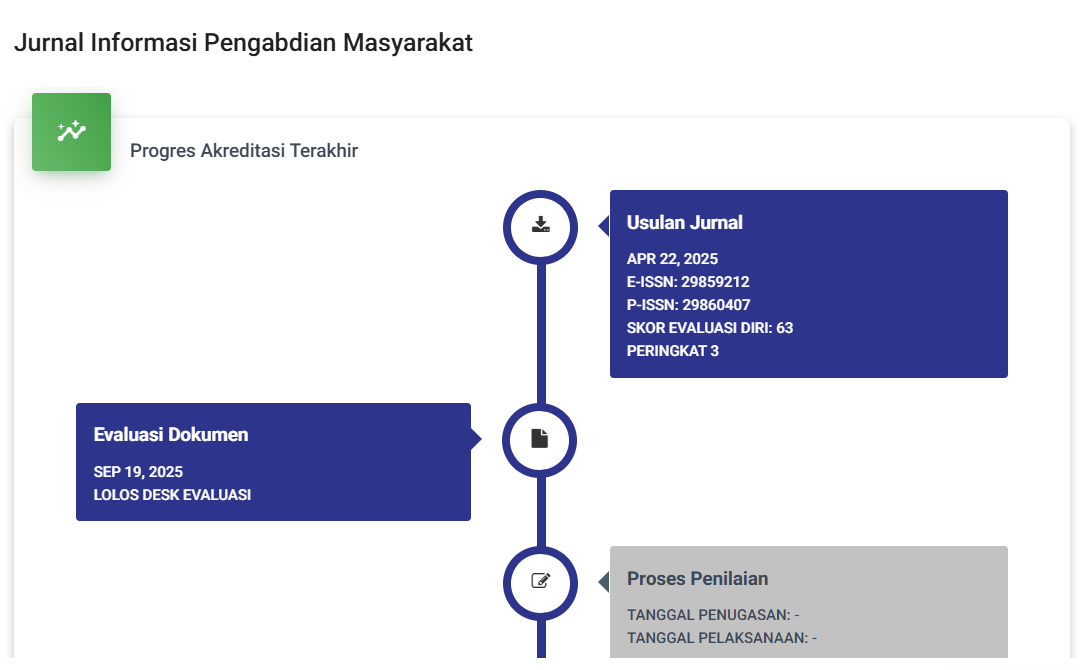Diversifikasi Produk Olahan Kopi Menjadi Sabun Kopi (Sapo Coffea)
DOI:
https://doi.org/10.47861/jipm-nalanda.v1i2.174Keywords:
diversification, coffee, coffee soap, product, processedAbstract
Coffee has high economic value and is a very promising export commodity for Indonesia. Lembantongoa Village is one of the Robusta and Arabica coffee producing villages which has good potential in Sigi Regency. So far the coffee products sold by the people in the village are coffee beans. The utilization of coffee in Lembantongoa village is still limited to coffee beans. The coffee beans that have been collected are then further managed at the production house. Coffee beans under size 5 are coffee beans that are not included in the coffee criteria for consumption because they will affect the taste of the coffee drink. Coffee beans that are not sorted will become coffee waste that is not used and will damage the environment. Therefore, unsorted coffee product development is carried out to become coffee soap in order to increase its selling value. Making coffee soap is done traditionally to avoid chemicals. This writer's activity was able to produce processed coffee soap products that were packaged under the name Letofie. The results of testimonials from consumers who have tried are very useful for skin beauty.
References
Agustiningsih, S. T. W. (2017). Pemanfaatan Ampas Kopi Dan Biji Kurma Dalam Pembuatan Lulur Tradisional Perawatan Tubuh Sebagai Alternatif “Green Cosmetics”. Jurnal Tata Rias, 6(01), 17-21
Barel, dkk. (2009). Pemanfaatan Limbah Ampas Kopi Dalam Pembuatan Sabun Batang di Kampung Wisata Kopi Lerek Gombengsari Banyuwangi. Dinamisia : Jurnal Pengabdian Kepada Masyarakat, 6(4), 1050–1055.
Basri dan Pakpahan. (2018). Pemanfaatan Bubuk Kopi Sebagai Antimikroba pada Pembuatan Sabun Universitas Jember , Indonesia. 2(2), 101–110.
Enggar Wahyudi, Rupiat Martini, T.E.S. (2018). ‘Perkembangan Perkebunan Kopi Di Indonesia’, 3(1). Prayuginingsih, H., Santosa, T.H. and Hazmi, M. (2012). ‘Peningkatan Daya Saing Kopi Rakyat Di Kabupaten Jember 1’, 6(3).
Kaplan, A. M., & Haenlein, M. (2010). Users of the world , unite. The challenges and opportunities of Social Media. https://doi.org/10.1016/j.bushor.2009.09. 003
Kotler dan Keller. (2012). Manajemen Pemasaran, Edisi 12. Jakarta: Erlangga.
Oktaviana, M., Yenny, S. W. (2019).
Perkembangan Penggunaan Kosmeseutikal Herbal Pada Terapi Melasma. Jurnal Kesehatan Andalas, 8(3): 717-725.
Rohmah, A.R. 2016. Pengaruh Proporsi Kulit Buah Kopi dan Oatmeal Terhadap Hasil Jadi Masker Tradisional untuk Perawatan Kulit Wajah. E-Journal Universitas Negeri Surabaya. 05(03): 73-79.
Tjiptono, Fandy. (2010). Strategi Pemasaran, Edisi 2. Yogyakarta: Andi Offset.
Wulandari, A., Rustiani E., Noorlaela E., dan Agustina, P. (2019). Formulasi Ekstraksi dan Biji Kopi Robusta dalam Sediaan Masker Gel Peel Off untuk Meningkatkan Kelembapan dan Kehalusan Kulit. Fitofarmaka Jurnal Ilmiah Farmasi. 9(2):77-85
Downloads
Published
How to Cite
Issue
Section
License
Copyright (c) 2023 Sakila Sakila, Wiri Wirastuti, Harnida Wahyuni Adda

This work is licensed under a Creative Commons Attribution-ShareAlike 4.0 International License.










